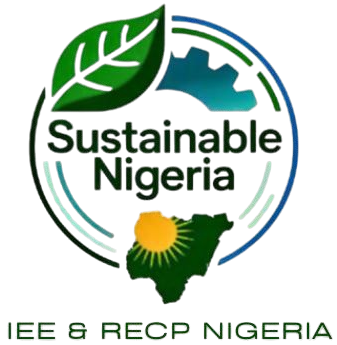about the project
Project Overview
The Industrial Energy Efficiency (IEE) and Resource Efficient and Cleaner Production (RECP) Project is a landmark initiative funded by the Global Environment Facility (GEF) and implemented by the United Nations Industrial Development Organization (UNIDO) in close partnership with the Government of Nigeria.
Its primary goal is to accelerate the decarbonization of Nigeria’s manufacturing sector by enhancing productivity and promoting sustainability. Through a multi-faceted approach, the project seeks to integrate global best practices in energy and resource management, thereby fostering a more competitive and environmentally responsible industrial landscape.
Our Vision & Objectives
our vision
To foster a sustainable, competitive, and decarbonized Nigerian industrial sector, recognized as a model for resource efficiency in Africa.
Key Objectives
- Integration of global best practices in energy and resource management.
- Improved resource productivity and environmental performance across industries.
- Adoption of Energy Management Systems (EnMS) and Environmental Management Systems (EMS).
- Strengthening national institutional capacity for long-term, sustainable impact.
Strategic Partnerships
International & Funding Partners
Global leadership and financial backing for the project’s success.
National Implementing & Technical Partners
Driving on-the-ground implementation and policy alignment within Nigeria.
FMITI
ECN
FMEnv
SON
BOI
NUC
MAN
Our Four Pillars
Capacity Building
Enhancing skills for IEE & RECP implementation.
Policy & Institutional Support
Strengthening frameworks for long-term impact.
Technical Demonstration
Showcasing best practices in pilot enterprises.
Awareness & Knowledge
Managing and disseminating project learnings.
Target Beneficiaries
- Industrial enterprises seeking improved efficiency and competitiveness.
- Policymakers and regulators developing sustainable industrial policies.
- Financial institutions investing in green industrial projects.
- Academic and research institutions advancing IEE & RECP knowledge.
Milestones & Key Achievements
- Successful launch and multiple steering committee meetings held to guide project implementation.
- Over 20 capacity-building workshops conducted for industrial experts and policymakers.
- Establishment of 10 pilot demonstration sites showcasing IEE & RECP best practices.
- Significant institutional engagements with key national partners to foster long-term sustainability.
- Facilitation of high-level policy dialogues contributing to Nigeria's industrial decarbonization roadmap.
